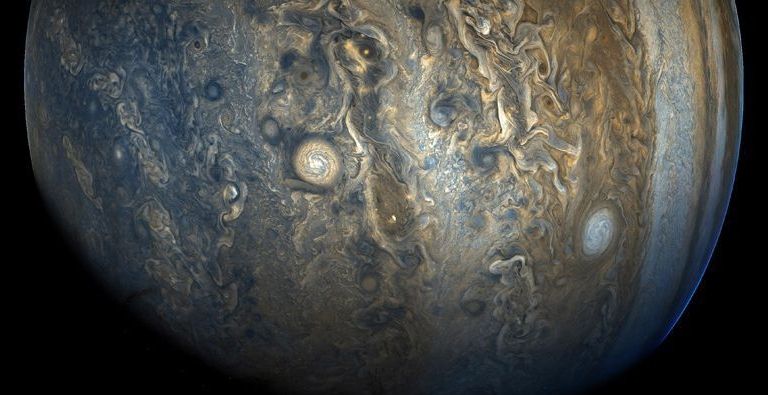Up to 79 moons now.
Ten more moons have been confirmed to orbit around Jupiter, bringing the planet’s total known satellite count to 79. That’s the highest number of moons of any planet in the Solar System. And these newly discovered space rocks are giving astronomers insight as to why the Jupiter system looks like it does today.
Astronomers at Carnegie Institution for Science first found these moons in March 2017, along with two others that were already confirmed in June of last year. The team initially found all 12 moons using the Blanco 4-meter telescope in Chile, though finding these objects wasn’t their main goal. Instead, they were searching for incredibly distant small objects — or even planets — that might be lurking in our Solar System beyond Pluto. But as they searched for these fringe space rocks, they decided to take a peek at what might be lurking around Jupiter at the same time. Now, the moons they found have been observed multiple times, and their exact orbits have been submitted for approval from the International Astronomical Union, which officially recognizes celestial bodies.










Comments are closed.